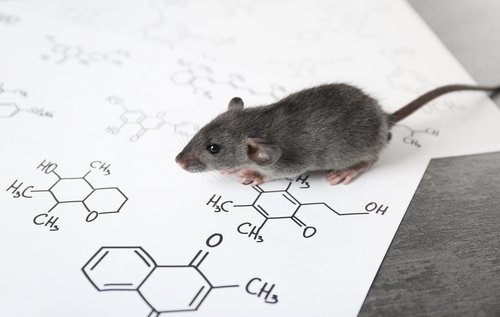Inhibiting Enzyme Slows Huntington’s Progression in Mice and Lengthens Their Lives, Study Reports
Written by |

Inhibiting the activity of an enzyme preserved the movement capabilities of mice with Huntington’s, slowed the progression of the disease and extended the animals’ lives, according to a study.
The dSETDB1/ESET enzyme can disrupt a mechanism that controls normal gene expression, the researchers discovered. Alterations in that expression, along with other circumstances, can lead to expression of the mutated form of the huntingtin protein (mHTT) that is a hallmark of Huntington’s. Expression is the process by which information from a gene is used to create a functional product like a protein.
Previous studies have shown that expression of mutated huntingtin protein is not only associated with alterations in normal gene expression but also with epigenetic modifications, or changes in gene expression without changes in DNA sequence.
Several studies have demonstrated that inhibiting the effects of epigenetic modifications can benefit animals with Huntington’s. The strategy has been unsuccessful in clinical trials of humans, however.
A team at the Korea Institute of Science and Technology discovered that the dSETDB1/ESET can regulate mechanisms involved in epigenetic modifications. The finding suggests that targeting those mechanisms could be a way to tackle the disease.
The study, “Remodeling of heterochromatin structure slows neuropathological progression and prolongs survival in an animal model of Huntington’s disease,” was published in Acta Neuropathologica.
Researchers used the antibiotic nogalamycin, which is known for its anti-cancer proprieties, to inhibit the enzyme’s activity in mice with Huntington’s. Nogalamycin reduced epigenetic modifications, preserving the mice’s movement capabilities, slowing the progression of their disease and extending their lives.
The results suggest that targeting enzymes could be a way to protect patients from neurodegeneration.
“This study suggests the possibility of developing epigenetic therapeutic agents that can alleviate neuronal damage and behavioral disturbances seen in Huntington’s disease,” Dr. Ryu Hoon, senior author of the study, said in a news release written by Constance Williams.
Although nogalamycin protected neurons and alleviated Huntington’s symptoms in mice, it may not be possible to use it in clinical trials because of its toxicity. Changing the compound’s structure to reduce its toxicity while preserving its activity could pave the way to new therapies, the team said.
“This treatment mechanism will also contribute to the understanding and treatment of other pathologies such as degenerative brain diseases,” including dementia and Parkinson’s, Hoon said.


